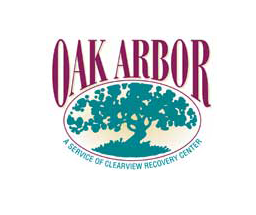Nourishing Your Body: Why Nutrition Matters in Addiction Recovery
- By Admin
- •
- 11 Jan, 2019
- •

If you have been struggling with an addiction to drugs or alcohol, you also may have experienced a decline in your physical health. Drug use stresses the body, and continued use can cause harm that your body can't heal with the nutrients it has.
As your addiction wanes during treatment, you will need to rebuild good physical habits that will help you continue on the path to better and lasting health. Healthy eating can even help you stay sober after you leave treatment. Here's what you need to know about the role nutrition plays during addiction recovery.
Nutrient Depletion
When you use drugs or alcohol, getting the nutrients you need is much more challenging. For example, alcohol use changes the ways your body is able to metabolize and store certain nutrients, so you don't get what you need from healthy food, even if you do make healthy choices on a day-to-day basis.
Opiates can upset your gastrointestinal tract, which might give you intolerance or aversions to foods that could provide you with the nutrition you need. Long-term use of drugs can also lead to nutrient depletion. It's not uncommon to see people who are underweight or undernourished because of addiction.
During recovery, the toll on your body is even higher. Going off any drug stresses your body, and you often lose valuable nutrients from vomiting, loose stools, sweat, and food intolerance. You may need IV fluids and electrolytes during the initial period of physical detox.
Because both using and going off addictive substances depletes your body of necessary nutrients, you enter recovery at a deficit, and you suffer physical side effects from those deficits. For example, your hair and skin might look dull, or you might have trouble concentrating. Feeding your body properly will help you recover.
Specific Meal Plans to Resolve Nutritional Depletion
To address the deficits that you have as you work on your recovery, you benefit from targeted, specific meal plans that provide a balance of the nutrients you need. Many addicts need increased protein to rebuild muscle mass, increased calcium to replace that which was lost from their bones and teeth, and increased B vitamins to support digestive and nerve health.
You also need a carbohydrate-rich diet to stimulate the natural production of serotonin in your brain. These foods include bread, potatoes, and pasta.
Frequent drug use also alters your body's ability to feel hunger. In the beginning, scheduled meals help to prevent feelings of hunger, which can mimic cravings for drugs and trigger a relapse. Filling meals with complex carbohydrates, protein, and plenty of vegetables and fruits keep hunger pangs at bay so you can stay sober.
Deficits in certain vitamins and minerals can also cause emotional symptoms. For example, low iron levels cause constant tiredness, irritability, and even depression. As you get the iron you need, you have more energy and it's easier to feel positive. Nutritional deficits need to be resolved because they can also trigger a relapse if the emotional side effects are too strong.
Your recovery program should have meals that are planned at first by a dietician. However, as your treatment continues, take time to learn about nutrition and proper eating habits so that you can make your own healthy choices after you leave in-patient treatment.
Changing Habits for a Better Future
As you change the way you eat, you will see the positive changes in your body. First, you might gain some weight as your body relearns normal digestive patterns. You can help this process by incorporating daily exercise as a method of normalizing your metabolism.
Establishing a pattern of exercise will also help you to stick to your recovery goals because exercise provides positive hormones that promote a sense of well-being. As you get the nutrition you need, you will also experience reduced physical stress and better sleep at night, which can also help you to avoid relapsing back into drug or alcohol use.
Changing your nutritional habits is a foundational step forward in making your recovery last. For more information, contact us at Oak Arbor.





